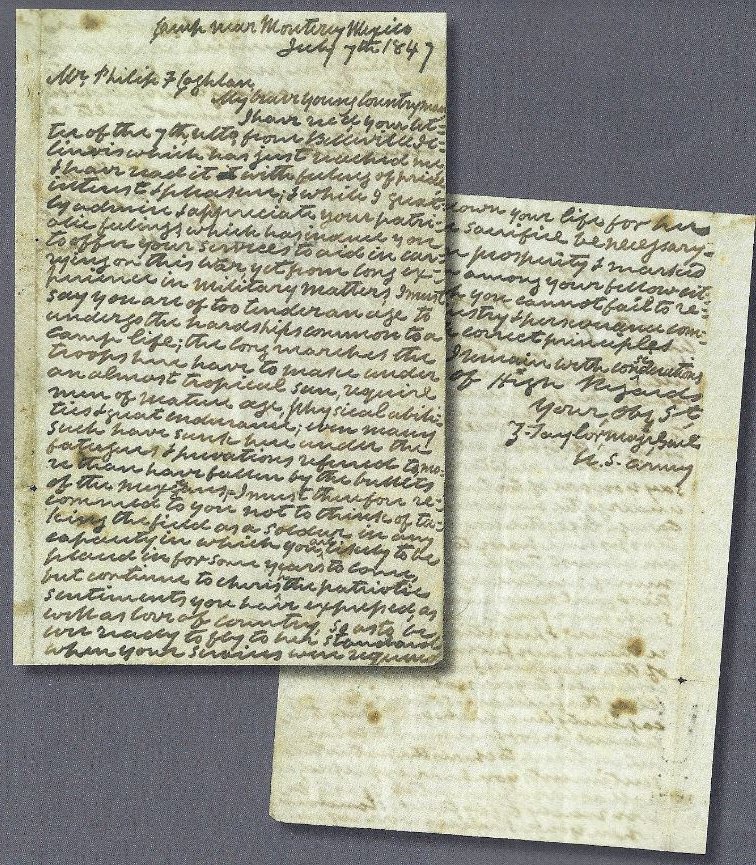Important Historic Documents from the Raab Collection
- by Michael Stillman

Important Historic Documents from the Raab Collection
Here is a letter much more like you would expect from its author. The date of the letter is January 8, 1916, the recipient English Egyptologist Arthur Weigell. The writer was former President Theodore Roosevelt. Roosevelt was noted for his progressive causes at home, internationalist views abroad. England was at war at the time with Germany, the First World War, but America was not yet involved. Most Americans wanted to avoid foreign involvement, and President Wilson would successfully run for re-election that year on a “he kept us out of war” motto. As we all now know, events would propel Wilson into war a short time later. Roosevelt did not want to wait. He felt America should be joining the British side immediately. Roosevelt chastises Wilson and the American public for not acting sooner. He tells Weigell, “...I am almost as much concerned about the war as you are. I have done everything I could to make my country stand as it ought to stand; but we are cursed with a President who is a timid and shifty phrasemaker; and naturally our people, when they are not roused by their official leader, fail to realize their duty, or the real nearness to them of events in the rest of the world.” Item 15. $10,000.
Martin Luther King was always a potential target of violence with his emergence as a major civil rights force. Civil rights leaders and innocent bystanders often paid a heavy price, as Rev. King would himself in time. Nevertheless, he understood and faced the risks while downplaying the importance of his own safety. On May 21, 1965, he wrote a letter to Sargeant James Adair of the Philadelphia police, who took seriously his role in protecting Dr. King. Writes King, “While I hardly feel this necessary most of the time, it is both comforting and humbling to know that there are persons who are so concerned about my welfare.” Item 23. $10,500.
Winston Churchill never lacked for confidence. He led Britain from its darkest hour, when all seemed hopeless to many. England was fighting the war virtually alone in 1940, the nation under siege from nightly German air attacks that devastated London and other cities. Yet here we see his confidence, in a letter dated February 17, 1941. It deals with the number of members of the War Aims Committee, a request to expand the numbers to provide more political balance (Churchill declined). The purpose of Churchill's War Aims Committee, at a time of such overwhelmingly poor odds, was to lay the groundwork for a post-war victorious England. Churchill never wavered. Item 28. $8,500.
The Raab Collection may be reached at 800-977-8333 or questions@raabcollection.com. Their website is www.raabcollection.com